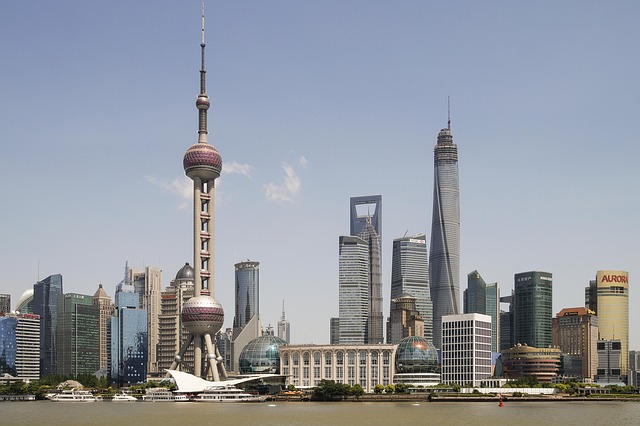After a third bailout package for Greece was agreed in mid-July, currency markets turned their focus to the Fed - at least until China came along in early August with the announcement of a significant change to its exchange-rate policy - a move that has arguably revived the currency war, albeit reactions have for now been concentrated in emerging-market currencies.
Over the summer worries over the state of the Chinese economy intensified and equities were sold off extensively. Indeed, China remains in a cyclical and structural slowdown with GDP growth poised to drop below the government's target of 7% both in Q3 and 2015 as a whole. Importantly, however, the housing market appears to be stabilising, suggesting a recovery in growth later in H2.
On 11 August the PBoC then announced a major change to the exchange-rate system: a one-off devaluation in USD/CNY was made but hereafter the daily fixing (reference rate) will be market-determined (banks reporting based on yesterday's close). While the PBoC still reserves - and has already exploited - its right to intervene in CNY, this is still an important step towards China's longer-term goal of a floating exchange rate and increasing the CNY's role in the global financial system. In the short run, CNY remains a managed exchange rate with the PBoC continuing to intervene substantially. However, the link to the USD has been loosened and volatility will increase over time.
It was largely two factors that led PBoC to announce a shift in exchange-rate policy now: first, the worsening macro outlook and a strong dollar have made the PBoC keen to see a weaker yuan, and second, China is aiming at having the CNY included in the IMF's Special Drawing Rights (SDR) unit in connection with the review of the SDR weights this autumn - and a more freely floating exchange rate is a prerequisite for this to happen.The more flexible exchange-rate regime has created more room for manoeuvre for monetary policy.
"We expect the PBoC to cut its leading interest rate further from here. Also, the reserve requirement ratio is now likely to be cut more aggressively to offset the negative impact on liquidity from the recent FX intervention", says Danske Bank.



 South Africa Eyes ECB Repo Lines as Inflation Eases and Rate Cuts Loom
South Africa Eyes ECB Repo Lines as Inflation Eases and Rate Cuts Loom  Oil Prices Slide on US-Iran Talks, Dollar Strength and Profit-Taking Pressure
Oil Prices Slide on US-Iran Talks, Dollar Strength and Profit-Taking Pressure  Thailand Inflation Remains Negative for 10th Straight Month in January
Thailand Inflation Remains Negative for 10th Straight Month in January  Trump Endorses Japan’s Sanae Takaichi Ahead of Crucial Election Amid Market and China Tensions
Trump Endorses Japan’s Sanae Takaichi Ahead of Crucial Election Amid Market and China Tensions  Fed Governor Lisa Cook Warns Inflation Risks Remain as Rates Stay Steady
Fed Governor Lisa Cook Warns Inflation Risks Remain as Rates Stay Steady  Silver Prices Plunge in Asian Trade as Dollar Strength Triggers Fresh Precious Metals Sell-Off
Silver Prices Plunge in Asian Trade as Dollar Strength Triggers Fresh Precious Metals Sell-Off  Gold Prices Fall Amid Rate Jitters; Copper Steady as China Stimulus Eyed
Gold Prices Fall Amid Rate Jitters; Copper Steady as China Stimulus Eyed  Gold and Silver Prices Slide as Dollar Strength and Easing Tensions Weigh on Metals
Gold and Silver Prices Slide as Dollar Strength and Easing Tensions Weigh on Metals  Bank of Japan Signals Readiness for Near-Term Rate Hike as Inflation Nears Target
Bank of Japan Signals Readiness for Near-Term Rate Hike as Inflation Nears Target 































